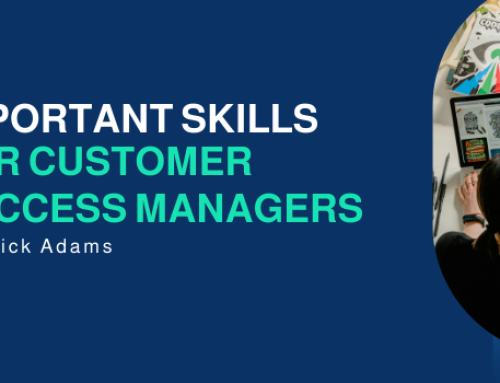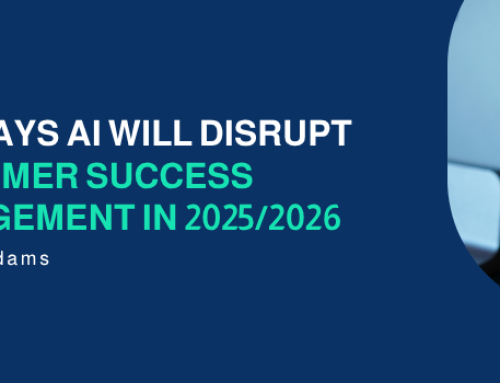What Makes Customer Success Unique?
The difference between Customer Success and Customer Experience, Customer Support, Account Management, and Customer Satisfaction
Customer Success is often misunderstood as something else. Companies hire Customer Success Managers but expect them to do entirely different responsibilities than what CSMs should do. It causes confusion and even disappointment due to unmet expectations. It’s understandable how it gets mixed up with other fields as Customer Success commonly overlaps with the other functions, namely, Customer Experience, Customer Support, Account Management, and Customer Satisfaction.
However, customer success is not the same or equivalent to others; it’s an entirely different perspective. Customer Success is focusing on the ability of the customers to achieve value for them to stay as a customer for a long time- driving revenue growth.
Let’s clear up the cloud of confusion and answer the question we’ve all asked before, and some may still be asking, what makes Customer Success unique from the other business functions?
Customer Success
Why do the customers use our product or service, and how can we help them be more successful?
As we all know, Customer Success focuses on why the customers decided to be your customers. These customers saw value from the product or service you are providing and believed that you could deliver their expectations in a particular manner. Now, Customer Success Managers focus on delivering their intended outcomes to ensure that they stay for a long time.
Customer Success Managers’ point of view is not only for the customers despite being customer-centric. They view the bigger picture of how their actions and the customer’s success affect the business. Therefore, Customer Success is proactive in trying to solve the problems not even the customers may know yet. Customer Success Managers are involved in all parts of the Customer Lifecycle, providing expertise and consultation strategizing the most efficient road to value generation.
Moreover, Customer Success goes beyond what the customers want; they deliver what they need. As customers may not even know what they genuinely need to attain the goals they’ve set for themselves, Customer Success Managers provide what’s best for the customers. They have a deep understanding of the company, the product, and the customer, with a wide range of skillset.
Customer Experience
How can we simplify the user experience?
Customer Experience (CX) is also a new function that focuses on the customers, but in a different way. They investigate what factors affect the user’s experience and how they can improve them. CX ensures that these customers are satisfied at all touchpoints to drive customers to use the product more.
Their goal is to positively impact the customers through the product and ensure that they are not having difficulty navigating and identifying what they need. This, in turn, directly affects revenue generation, as an improvement in CX makes the customers satisfied and possibly, buy more. Customer Experience attracts and maintains a great relationship with the customers by managing the company-customer interaction, even before they buy the product or service.
Compared to Customer Success, Customer Experience makes product utilization easy.
Customer Support
What is the best solution for the customer’s current problem?
Customer Support focuses on helping clients with their immediate concerns. They form a reactive and transactional relationship, finding the best way to quickly solve the customer’s problem. Customer Support professionals are focused on one customer at a time, responding for quick issue resolution or avoidance. They use their technical knowledge quickly return the customers to the product or service usage.
Unlike Customer Success, which is with the customer throughout the customer lifecycle, Customer Support only connects with the client once there’s an issue to solve. With that in mind, the less interaction a customer has with Customer Support, the better it is, as it may signify that the customer experiences few problems. However, it may not always be the case.
Account Management
What can we make the customer buy more of?
Account management is not interested in clients being successful. They focus on the business side of things that drive revenue for the company – account growth. Account growth is the upsells and cross-sells happening in a singular account wherein the customer decides to, for example, use a higher subscription plan or buy more products.
Account managers have deep technical knowledge, understand all aspects of the product they’re selling to propose solutions, and encourage upsells and cross-sells. They are also reactive, as they respond to the customers’ requests and try to make them buy more during the interaction.
Most actions of the account management team are done near the end of the customer lifecycle, wherein they try to make the customers stay with the company with a better plan.
Customer Satisfaction
How can we make the customers happy?
Customer Satisfaction heavily depends on how satisfied the customers with the team’s response are. They are also reactive as they only get involved as questions arise from the customers where the Customer Satisfaction team would do its best to make the customers happy.
Customer Satisfaction truly believes that the customers are always right. They provide precisely what the customers want when they wish to receive.
To wrap things up,
Customer Success’ common difference from other business functions is that Customer Success is proactive in helping clients achieve their goals. They don’t sit around waiting for the customers to reach out and expect them to use the product at its utmost capacity on their own. Customer Success interacts with the clients from the beginning to the end of the customer lifecycle, ensuring long-term satisfaction and, for the company- increased revenue.





